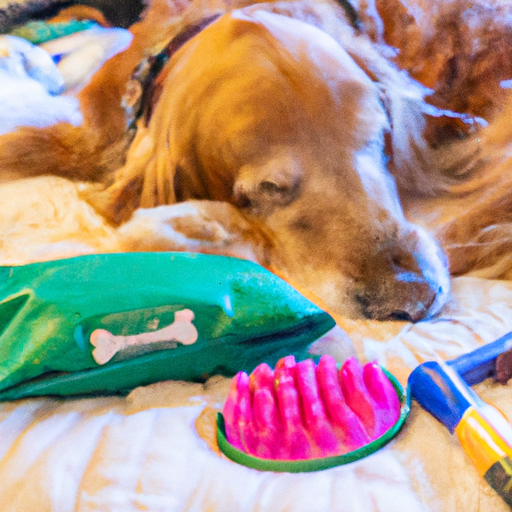As our loyal friends age, they may require a little extra care and attention. Like us, their bodies and behaviors change with age, and as their caregivers, it’s our responsibility to ensure they live out their golden years in comfort and happiness. This comprehensive guide will take you through the how to care for old dogs journey, ensuring our furry friends remain healthy, happy, and loved.
Table of Contents
- Understanding the Aging Process in Dogs
- Diet and Nutrition for Older Dogs
- Exercise and Physical Care
- Regular Health Check-ups
- Mental Health and Stimulation
- Frequently Asked Questions
Key Takeaways
- Understand the changes that occur as your dog ages
- Know how to adjust your dog’s diet and exercise routine
- Importance of regular health check-ups
- Understand the signs of mental health issues and how to stimulate your dog’s mind
- Know how to create a comfortable environment for your aging dog
Understanding the Aging Process in Dogs
Just as in humans, the aging process in dogs is accompanied by various physical and mental changes. These changes include decreased activity levels, potential weight gain or loss, changes in sleep patterns, and possibly even cognitive decline. Understanding these changes can better equip you to care for your aging furry friend. American Kennel Club provides a thorough understanding of the aging process in dogs.
Diet and Nutrition for Older Dogs
As your dog ages, their dietary needs will change. They may require fewer calories if their activity level decreases, or they may need more if they are losing weight. Some dogs may also require supplements to support joint health or aid digestion. It’s also important to monitor your dog’s water intake to ensure they are staying hydrated. Remember, the dietary needs of each dog may vary. It’s best to consult your vet to tailor a diet plan that suits your dog’s specific needs.
You can find a comprehensive guide on how to adjust your dog’s diet as they age on OneTopDog.
Exercise and Physical Care
Regular exercise is essential to keep your dog’s weight in check and their body healthy. However, as dogs age, they may not be able to handle the same level of physical activity as they once could. Adjust their exercise routine to accommodate their decreasing energy levels.
Physical care also includes grooming. Regular brushing keeps your dog’s coat healthy and provides a chance to check for any unusual bumps or lumps. Oral care is also important to prevent dental diseases.
Here is a useful guide on grooming your older dog.
Regular Health Check-ups
Regular health check-ups become increasingly important as your dog ages. These visits to the vet can help catch any potential health problems early. Remember to keep up with routine vaccinations and parasite control.
Mental Health and Stimulation
Just like humans, dogs can also suffer from cognitive decline and dementia. Mental stimulation is crucial to keep your dog’s mind sharp. This can be achieved through puzzle toys, learning new tricks, or simply interacting with them regularly.
Here’s a handy resource on mental stimulation for older dogs.
Frequently Asked Questions
1. How do I know if my dog is considered ‘old’?
The age at which a dog is considered ‘old’ can vary depending on their size and breed. Generally, larger breeds age faster than smaller ones. A vet can help determine if your dog is considered a senior.
2. How often should I take my old dog to the vet?
At the very least, senior dogs should have a vet check-up every six months. However, if your dog has a known health problem, they may require more frequent visits.
3. My old dog seems to be in pain. What should I do?
If your dog shows signs of discomfort or pain, consult your vet immediately. It could be a sign of arthritis or another health issue. Pain management options are available to make your dog more comfortable.
Caring for an old dog may require a bit more time and effort, but the companionship and love they provide is priceless. Remember, every dog ages differently, and what works for one may not work for another. Always consult with your vet if you have any concerns about your dog’s health or behavior. Together, we can ensure our old friends live out their lives in comfort and happiness.
Remember, old age is not a disease. It’s a stage of life that, with the right care and attention, can be a fulfilling and enjoyable time for your dog. You can find more information about caring for your aging dog on PetHealthNetwork.



